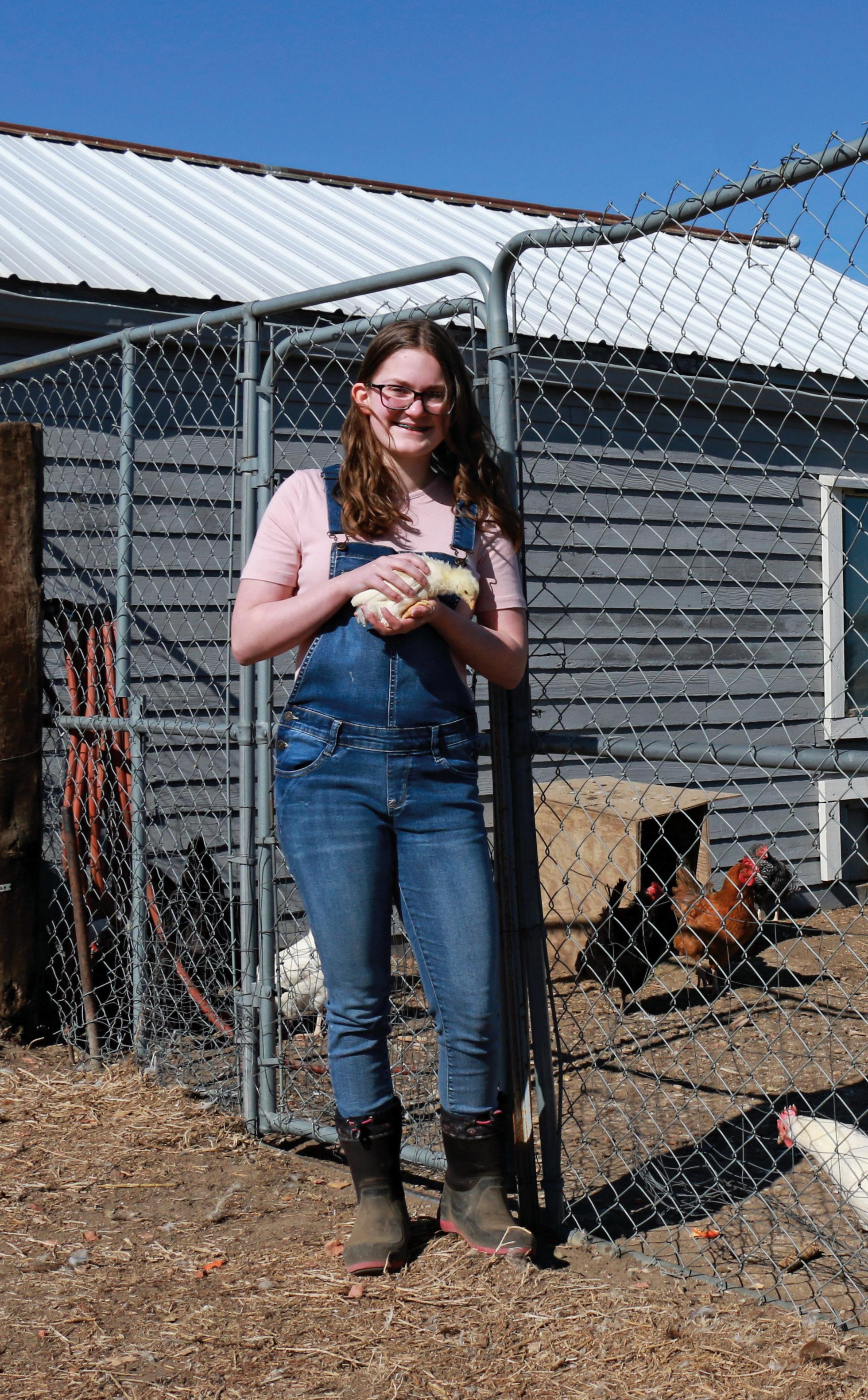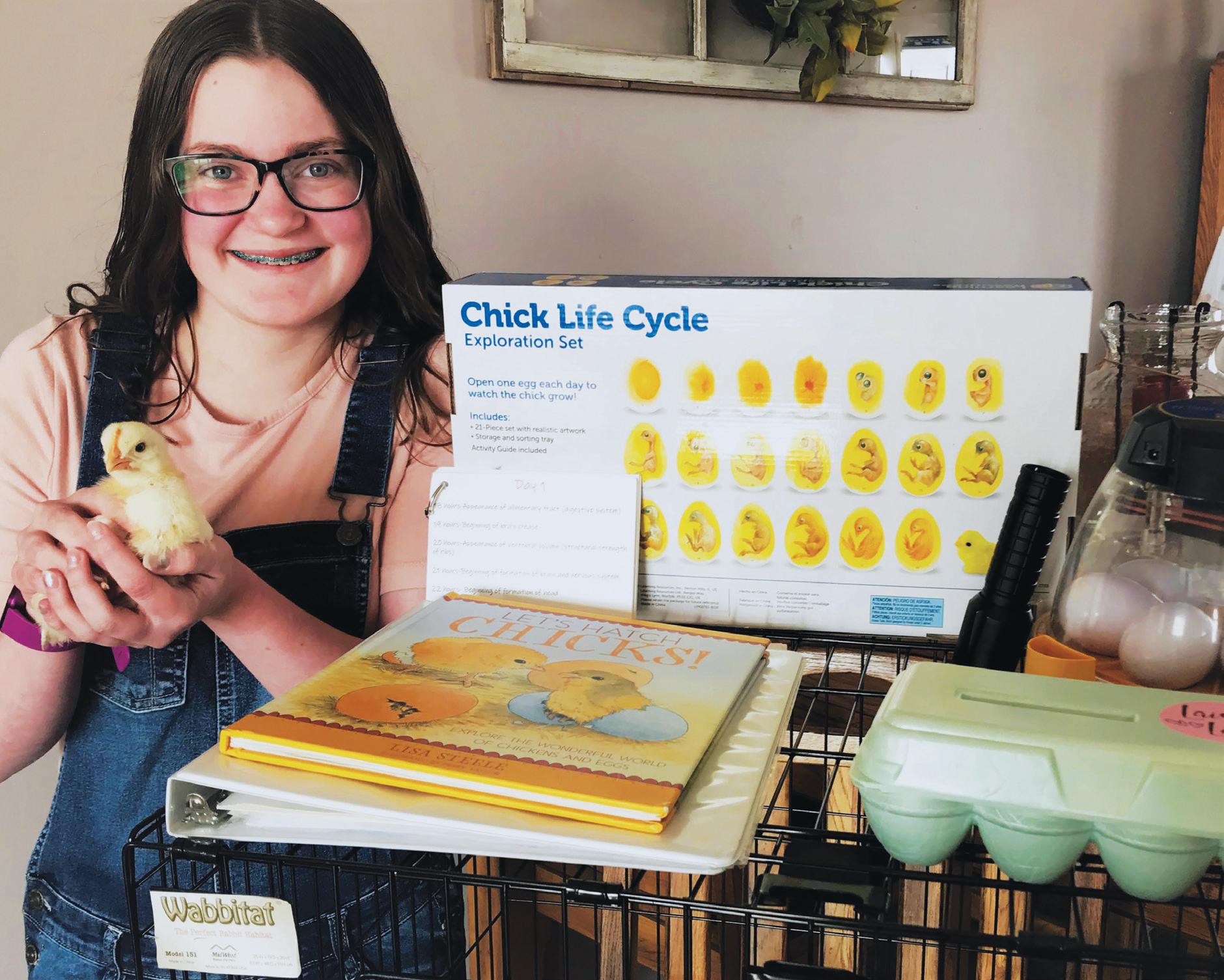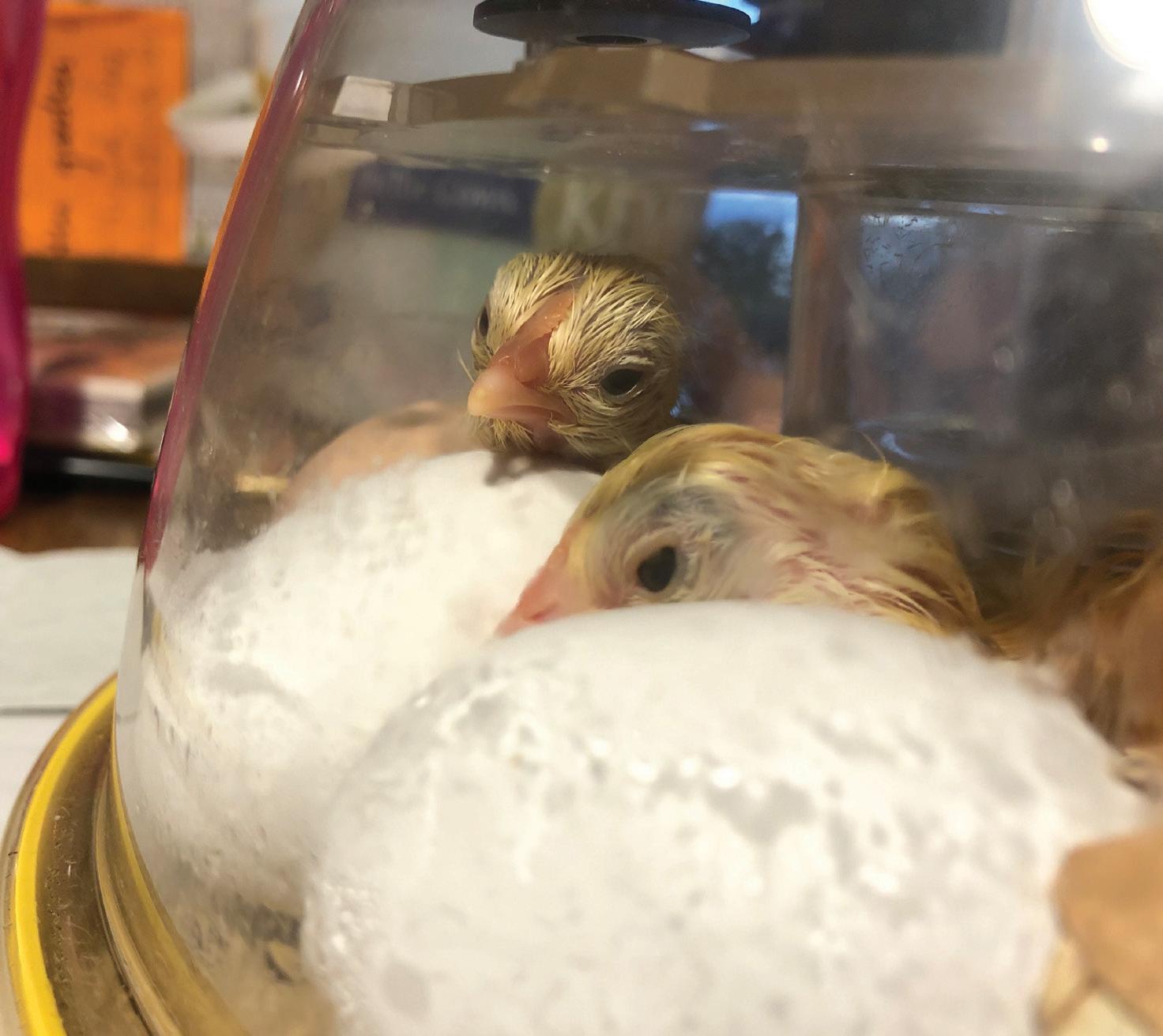
5 minute read
A love for hatching
14-year-old of rural Zap gives kids a chance to watch the hatching experience
Kristyn Bauer wanted to share her love for hatching baby chickens with the world. But to do so, she needed to start a business.
“People were making a lot of at-home kits (last year) like cookie kits and gardening kits,” she said. “I thought, what if I could make a kit where people could incubate chicks. So my Mom and I started bouncing ideas off each other and came up with a business.”
Fourteen years old and already an entrepreneur, the soft-spoken, hard-working teenager of rural Zap, N.D., doesn’t talk as though it’s a business. Her words reflect someone with a passion for animals and an eagerness to share her experiences with others.
“When I got my first incubator, I was in love with it,” Kristyn said. “It takes 12 hours to hatch, but I just sat there watching them. I invited friends over, and they loved it as much as I did, and I was like, how can I share this with as many people as possible?”
The result was Farm Chicks To Go, a small business in which customers – mostly families, daycares and classrooms – can pay $100 and rent a seven-egg incubator for 28 days. Kristyn delivers it with the eggs inside and sets it up completely, going over the handbook – which she wrote – and dropping off other educational tools like a chicken lifecycle kit and a kids book.

AT LEFT: Kristyn Bauer poses with the kit she rents out for educational purposes to classrooms, daycares and families. She has turned the process into a business: "Farm Chicks To Go."
Photos courtesy of the Bauer family.
It also comes with a cage – which includes the heater, feeder and water – for the hatched baby chicks, who literally come out of their shell after 3 weeks. That allows for one week in which students can watch the chicks go from birth to feathers.
“The only thing you have to supply is the electricity,” said Laura Beth, Kristyn’s mother.
At the end of the 28 days, Kristyn picks everything up – a swift process that can sometimes lead to tears.
“The hardest thing is when you have to go pick it up because the kids are sad and say, ‘Don’t take our chicks away!” Laura Beth said.
The Bauer family – parents Michael and Laura Beth, and daughters Kristyn and Kari – have lived on their place since August 2017. Michael, raised on a farm near Golden Valley, said they were looking for a property where they could have a small hobby farm. They had been living in Beulah. They found a place north of Zap, and now raise Katahden sheep – a breed raised for its meat rather than wool – as well as 60 chickens and a goose.
“We always wanted a place like this,” Michael said.
Fifteen chickens came with the purchase, which pleased Kristyn very much as she had already started researching having her own chickens.
“We would look at houses, and she would say, ‘I could put my chicken coop there!” Laura Beth said. “Once she had the idea, she researched and researched. She was so in love with the idea that she had to make it happen.”
To turn her vision into a reality, Kristyn invested her own money from selling eggs to purchase the necessary equipment, including the incubators and cages.
“It was her money that she invested, and we felt it was a good experience for her,” Laura Beth said. “As parents, you hope she at least gets her money back. But she started with one kit and she booked up so fast.”
Fast enough that Kristyn has added a second kit to rent. Customers pay a $25 deposit to secure their date and then pay the additional $75 when Kristyn delivers the kit.
“We didn’t think we would have as many rentals right away,” Kristyn said. “We did end up having to buy a big rabbit hutch to have multiple cages, because you can’t have different ages in the same cage.”

Baby chicks emerge from eggs inside the seven-egg incubator.
Its popularity has created a problem for the Bauers – too many chickens. While demand remains high, the Bauers are careful about taking on more than they can manage, actually encouraging their customers to keep the baby chickens at no added cost. However, that has typically not been the case.
“You’re getting five chickens every time you do a rental,” Laura Beth said. “If it wasn’t for the baby chicks coming here, then another kit would be fine. We have to think rationally about what we can handle. These are living beings, and we won’t get rid of them because of inconvenience.”
Added Kristyn: “We will not do that ever. We do have to make sure we aren’t getting too many.”
Michael mentioned the added labor and logistical difficulties with more kits.
“It can be labor-intensive to set them up,” he said. “We have to balance that with the (chick population).”
Kristyn agreed and said cleanup is what takes most of her time.
“It’s a little harder than I thought to clean all of it because we get two kits back and only three days in between, so I have to sanitize all of it and get it ready,” she said.
But Kristyn isn’t one to shy away from any challenges, evident by her small business that is gaining in popularity.
“We’re proud of her for what she has done,” Laura Beth said. “We never saw it getting as big as it has.”
Kristyn’s desire to share her love of chickens with the world has not come without sacrifice. Since the business means the family never needs to hatch its own chickens, Kristyn hasn’t gotten the joy of watching eggs hatch since the business started.
“I really miss that – that has been hard,” said Kristyn, who wants to own a hatchery business someday. “I still want to do my own hatching (occasionally), but I don’t think I’ll be doing it for a while. I’ve kind of adjusted to it. People do send pictures, so that helps.”

